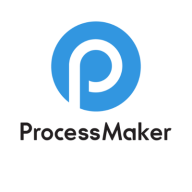

Appian and ProcessMaker compete in the business process management category. Appian has the upper hand due to its comprehensive feature set and advanced customization options, appealing to organizations requiring deep integrations.
Features: Appian includes advanced process automation, robust integration capabilities, and a low-code development environment supporting enterprise-scale customization. ProcessMaker offers a user-friendly platform focusing on workflow automation with intuitive modeling tools and efficient task management targeted at businesses seeking simplicity.
Ease of Deployment and Customer Service: Appian's deployment process is sophisticated, ideal for large enterprises, and is backed by extensive training resources and personalized support services. ProcessMaker provides a streamlined deployment with quicker setup times and responsive customer support, suitable for those seeking rapid implementation.
Pricing and ROI: Appian has higher setup costs due to its premium features and customization potential, providing significant long-term ROI for businesses leveraging its full capabilities. ProcessMaker is more budget-friendly with lower initial costs, offering strong ROI through efficiency and automation, appealing to businesses prioritizing quick implementation.


Appian is a unified low-code platform and solution used by businesses to build enterprise applications and workflows. This product adapts to the needs of clients and the technologies they are already using to combine their data in a single workflow and maximize resources. The platform has four main components through which it transforms the work process for companies of various sizes. They are:
Appian is utilized across a diverse set of industries, including automotive and manufacturing, energy and utilities, education, financial services, telecom and media, transportation, retail, insurance, healthcare, and life sciences. The most frequent use cases of Appian are customer journey, governance, risk and compliance, operational efficiency, supply chain, distributed order management, and environmental, social, and governance (ESG) management.
Appian Features
Appian has various features that allow users to create solutions for their businesses. These features can be separated into a few groups according to function, including automation, low-code application development, and integrations and data. Some of the most frequently used features of Appian include:
Appian Benefits
The benefits of using Appian include:
Reviews from Real Users
A practice leader - digital process automation at a computer software company values Appian highly because the product is easy to develop, low-code, and has a good user interface.
Alan G., an advisory board member at Codecon VR, Appian offers a clear application life cycle, easy to learn documentation, and comes with a fundamentals course.
ProcessMaker is an American multinational corporation headquartered in Raleigh-Durham, North Carolina. The company specializes primarily in developing and marketing enterprise business process management (BPM) software. The company also provides customer support, training, and professional services to larger enterprise customers that require highly customized solutions. The company’s flagship Low-Code BPM product is known for its ease of use and ability for deep customization.
We monitor all Business Process Management (BPM) reviews to prevent fraudulent reviews and keep review quality high. We do not post reviews by company employees or direct competitors. We validate each review for authenticity via cross-reference with LinkedIn, and personal follow-up with the reviewer when necessary.